
Self-Described “Ethics Geek” David Stark Receives CBA Award of Merit
December 2024
Download This Article (.pdf)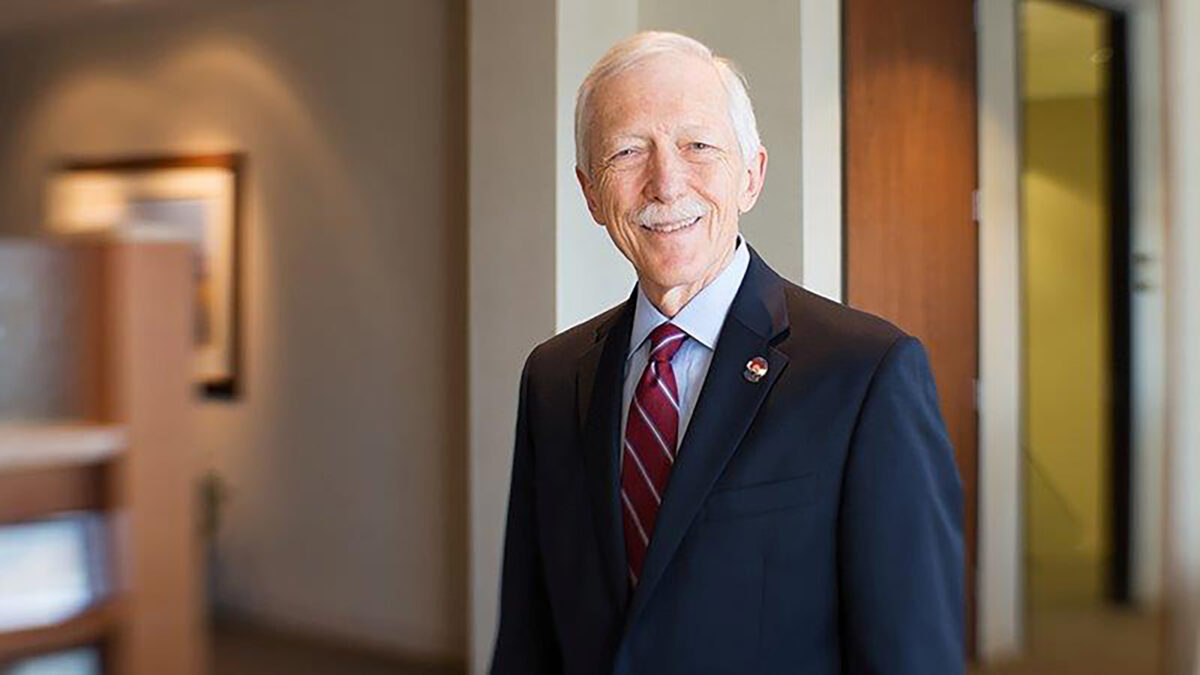
This year, the Colorado Bar Association presents its Award of Merit to David W. Stark, a retired partner at Faegre Drinker. Stark’s career has been largely in the field of legal ethics and trials of complex cases. “Throughout my career I often served as an informal ethics geek,” Stark says. Ethics issues were present in most of the cases he tried early on, and he went on to defend many lawyers in malpractice cases. In the 1990s, he was asked to join the Supreme Court Grievance Committee. “I decided to give it a try as one of many volunteers. That later morphed into a bigger role with lawyer discipline when the Supreme Court revised the system in 1998. Eventually, I became the chair of the Standing Committee on the Practice of Law. This committee oversees the legal regulation system for the Supreme Court. As you might imagine, much of the work involves ethics and professional responsibility. Late in my career, my firm asked me to be professional responsibility counsel, a very challenging and interesting position.”
When he was deciding to become a lawyer, Stark looked to TV and books for examples, citing characters like Atticus Finch as influences. But he credits his parents—who were not lawyers themselves but who both possessed a strong sense of right and wrong—as having the most impact. (Before he started college, Stark had thought he wanted to play shortstop for the Yankees and then later set his sights on becoming a doctor—“until I had to deal with organic chemistry.”)
Stark would embody the values of right in wrong in his career, but these values also marked his extensive volunteerism. “When I am asked to participate in a volunteer organization, I look for something that will move the needle toward access to justice for more people. One should not volunteer to burnish a résumé. If that is your motive, find something else. You will only embarrass yourself and fail to serve those most in need,” he says.
This also brings to mind his mentor, Brooke Wunnicke, who passed away in 2014. “She was the chief appellate deputy in the Denver DA’s office when I first met her as a law clerk. I talked with her and met with her nearly every week for the next 42 years. She was the best lawyer I have ever known. I learned from Brooke that the most important skills for any lawyer are good writing and speaking—being a good communicator. I also learned the values of integrity, honesty, character, and hard work. Finally, she taught me that we as lawyers owe a debt to our profession and to society. My work on access to justice is my way of satisfying that obligation.”
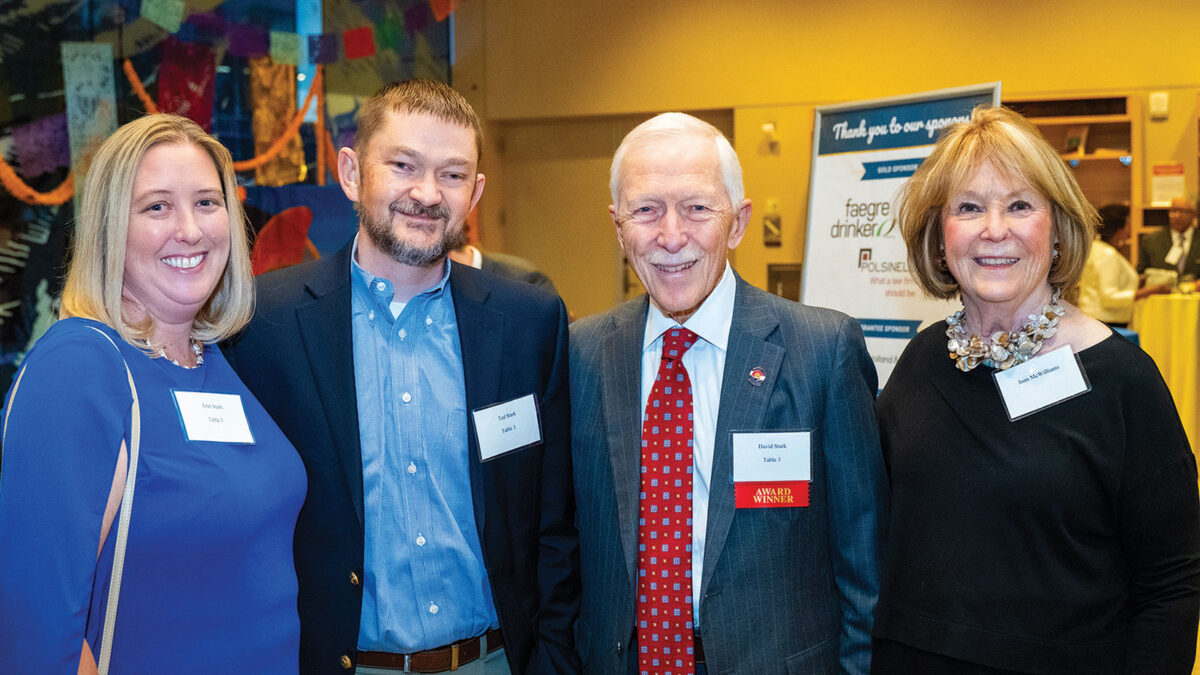
Some of the work Stark is most proud of includes promoting and developing access to justice programs in Colorado. Organizations and initiatives that bear the stamp of Stark’s generous volunteerism and expertise include:
- Legal Entrepreneurs for Justice, a small business incubator that trains and mentors socially conscious lawyers who want to build sustainable practices providing affordable legal solutions to modest-means Coloradans;
- Licensed Legal Paraprofessionals (LLPs are nonlawyers who are allowed to provide limited legal services in certain types of domestic relations cases. Given that some 75% of litigants in domestic relations cases have no legal representation, LLPs could help fill the gap in representation);
- Succession to Service, a statewide platform for Colorado lawyers and law students to partner with nonprofit organizations, courts, and other legal service entities to influence the continuing need for equal access to justice;
- the Colorado Access to Justice Commission, an independent entity that works to ensure equal access to the civil justice system for all people in Colorado, including addressing the problem of “legal deserts”;
- the Colorado Lawyers Committee, a nonpartisan consortium of Colorado law firms dedicated to creating and increasing opportunities for children, low-income individuals, and other disadvantaged communities through pro bono legal advocacy, negotiation, and litigation;
- the Professionalism Coordinating Council, a program of the Colorado and Denver Bar Associations that works to improve professional conduct by lawyers and judges; and
- the University of Colorado’s Law Alumni Board.
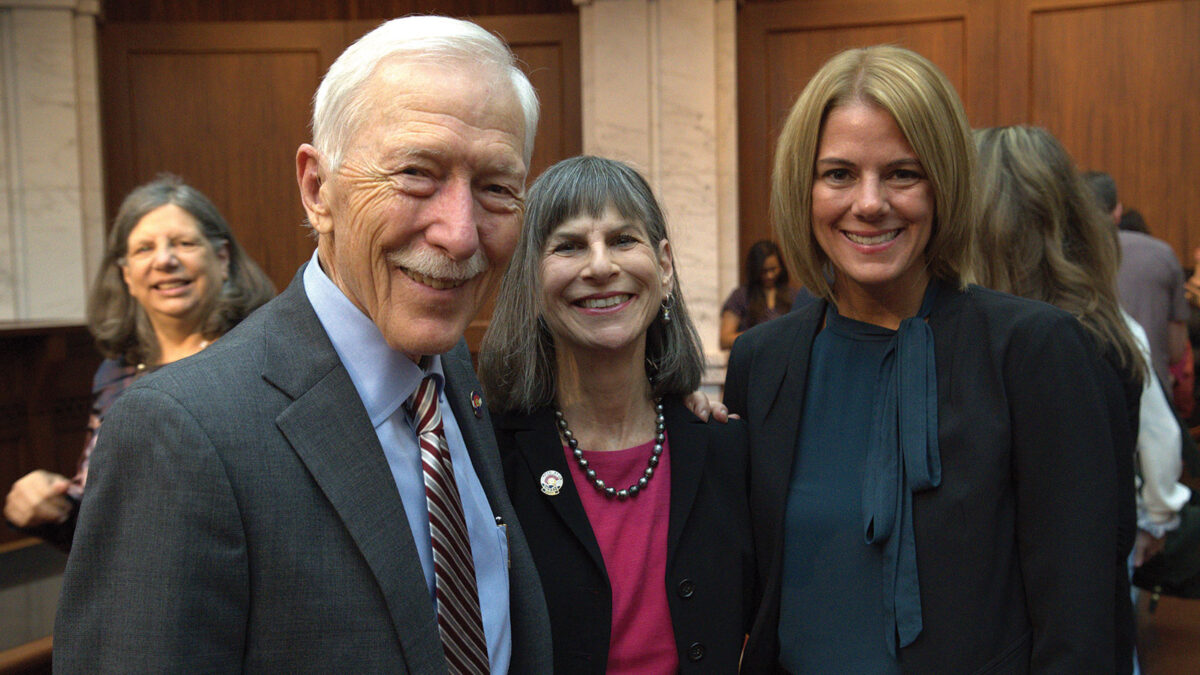
“Access to justice is not just for the indigent,” Stark reminds. “It is a continuum ranging from clients below the poverty level, to those caught in the ‘justice gap,’ to those dealing with systemic problems that often go far beyond legal issues. Each organization continues to play a part in our efforts to level the playing field so that all have a chance to live their best life.”
“I learned of the justice gap when I read a 2017 report by the Legal Services Corporation entitled, ‘The Justice Gap: Measuring the Unmet Civil Legal Needs of Low-Income Americans.’1 The report, along with statistics from our Colorado Judicial Department, showed that all but very wealthy individuals had the means to hire a lawyer for a simple civil dispute. In our state, 98% of all defendants in debt collection cases have no lawyer, and in domestic cases 75% of all parties have no lawyer. These are staggering statistics and show the need to close the justice gap for low-income Americans. Most in this group earn too much to qualify for legal aid but cannot afford a $400 emergency. Statistics also show that if this client group has a lawyer, they are much more likely to fight claims and are more likely to choose not to try to represent themselves. If we don’t close the justice gap, we end up with a two-tier justice system—those who have access to justice and those who do not.”
In addition to his volunteer work, Stark has also proudly contributed pro bono work representing veterans. “It has been some of the most fulfilling work I have done in my career. It includes helping vets obtain the retirement and disability benefits they are entitled to because of Agent Orange and PTSD.”
Stark himself served in the Army Reserves for six years and then “became involved with the National Veterans Legal Service (NVLS) Program’s Lawyers Serving Warriors when my firm joined over 100 other firms in providing pro bono legal help on matters of discharge upgrades, medical retirement, combat-related special compensation, and the Servicemembers’ Group Life Insurance Traumatic Injury Protection Program. NVLS partners with volunteer lawyers to assist veterans and service members in securing the benefits they have been wrongfully denied,” once again narrowing that justice gap for some of the most deserving but underrepresented.
Reflecting on the interplay of ethics and the justice gap, two of the major issues he has tackled in his career, Stark makes some interesting observations. “The focus on ethics and professionalism has increased dramatically since I began practicing in 1973. I believe this is due to greater emphasis on both the ABA Model Rules of Professional Conduct and many firms creating an office of general counsel to support and educate their lawyers.” In terms of the role of ethics in the justice gap, Stark sees it as less the root than a symptom of the problem: “While ethics plays a part, the source of the justice gap is the failure to recognize that equal access to justice benefits everyone, rich and poor, young and old.”
Aside from his work, Stark enjoys his local sports teams, citing the Broncos, Rockies, Avs, Nuggets, and CU Buffs as favorites. “And I have become a soccer fan in the past few years.” He is a lifelong Denver native, “a product of the Denver Public Schools, and CU. I love Colorado and Denver and have not found any place that is more livable.” He is also a runner and has completed many distance races, including marathons, half-marathons, and relays, but the “best job in the world,” according to Stark, is that of grandfather to his three grandkids, Quentin, Colby, and Valkyrie.
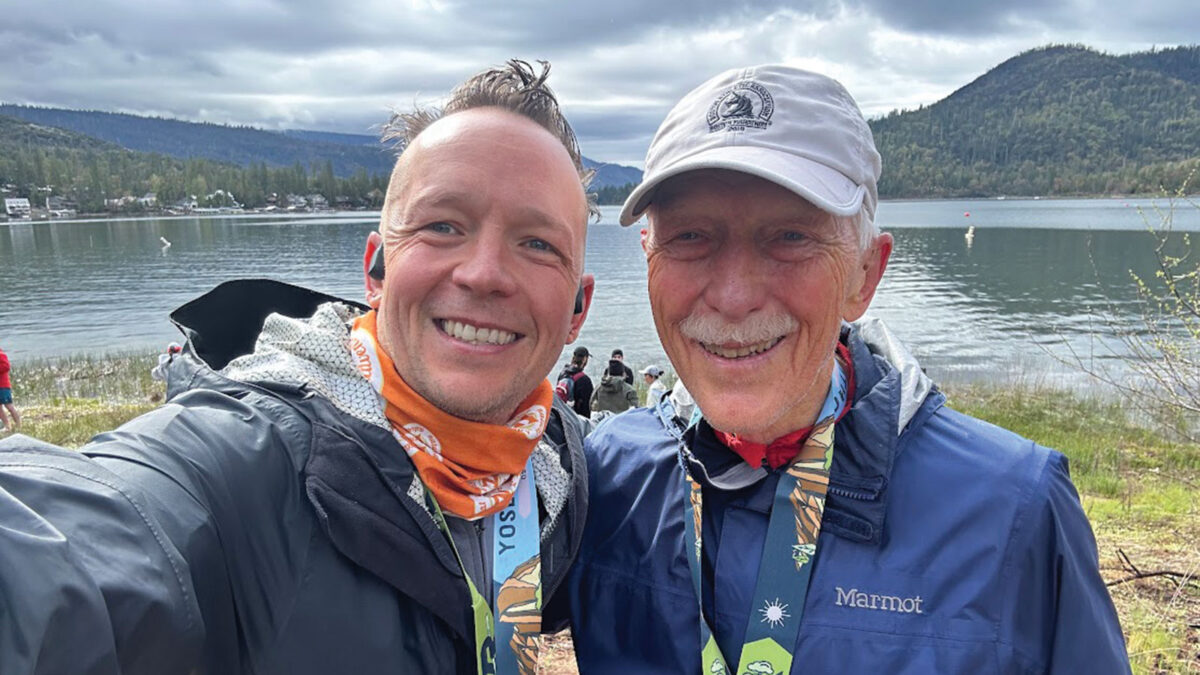
In fact, family is of highest importance. “None of my volunteer work would have been possible without the support of my wife Donra, my sons Ted and Tim, and their spouses Erin and Jenilee,” he says. “They put up with many long days and nights when I was working and offered their support and advice as nonlawyers who valued honesty and integrity.”
It seems honesty and integrity are a Stark family hallmark, as it’s hard to find two words that better encapsulate David and his lifelong commitment to ethics, professional responsibility, volunteerism, and access to justice. The CBA is proud to recognize him as its 2024 recipient of the Award of Merit, the association’s highest honor.
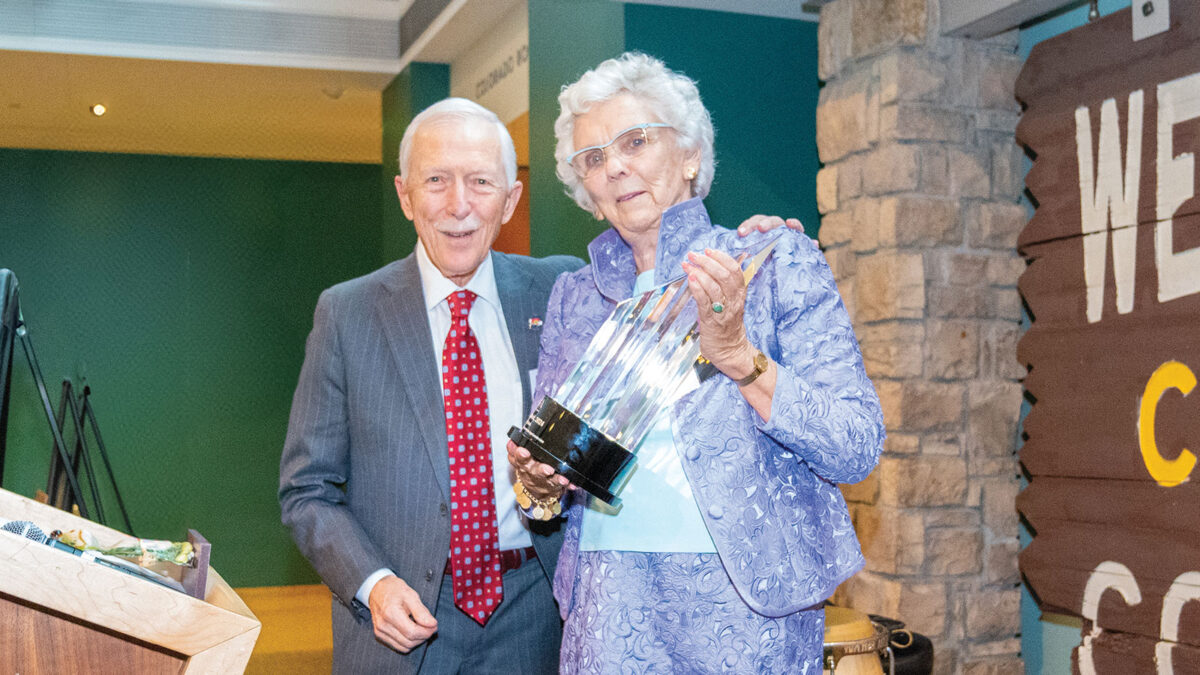
Notes
1. Legal Services Corporation,“ The Justice Gap: Measuring the Unmet Civil Legal Needs of Low-income Americans” (June 2017), https://www.lsc.gov/sites/default/files/images/TheJusticeGap-FullReport.pdf.


